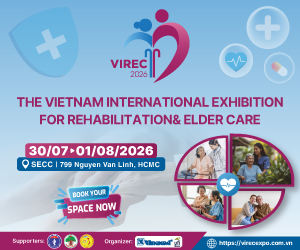Communication involves the sharing of information among two or more individuals, and there are several factors that drive the effectiveness of such an exchange. Within the context of healthcare, particularly in the interaction between doctors and patients, discrepancies in communication have been identified as a significant element affecting the patient’s experience.
Follow us on WhatsApp for the latest updates: https://bit.ly/AsiaMDWhatsAppEN
Good doctor-patient communication has the potential to improve healthcare outcomes, improve patient safety, reduce patient anxiety and enhanced trust and rapport, amongst other benefits. In this article, we reveal our most recent patient experience survey findings and outline some of the factors for effective doctor-patient communication.
Asia MD’s Patient Experience Survey Findings

Asia MD’s Patient Experience Survey highlights that 75% of respondents received the medical answers they needed when they visit a private medical clinic in Singapore. This suggests that healthcare providers in Singapore are generally effective in providing direct medical information to their patients in the clinic.
However, the survey also indirectly highlights the challenges that remain unaddressed. The 25% of respondents who did not get the answers they needed represent a significant minority whose experiences point to potential gaps in the healthcare delivery system.
This could stem from a variety of factors including but not limited to:
Patient-centered Communication Approach
The survey’s finding also opens up a discussion on the importance of effective doctor-patient communication delivery in enhancing patient experiences. Addressing the doctor-patient communication gap is essential in fostering a healthcare environment that prioritises patient-centered care. By taking steps to improve patient communication, healthcare professionals can build patient trust and engagement, ultimately leading to improved health outcomes.
Furthermore, in a digital era riddled with misinformation, more than ever, patients are in search of reliable medical expertise and trustworthy medical information from their healthcare providers. In the event should patients find the medical information they receive unsatisfactory, they have the option to consult medical specialists for a second opinion to better understand their health condition.
This article was produced solely for the purpose of healthcare and medical knowledge. Not all innovations are available or approved for clinical use. AsiaMD may receive financial or non-financial sponsorship from the companies or institutions involved in these innovations. However, AsiaMD does not endorse any specific product or services in the article, in addition to the Terms and Conditions for the use of our AsiaMD.com website. Please consult your healthcare professional if you need more information.



























